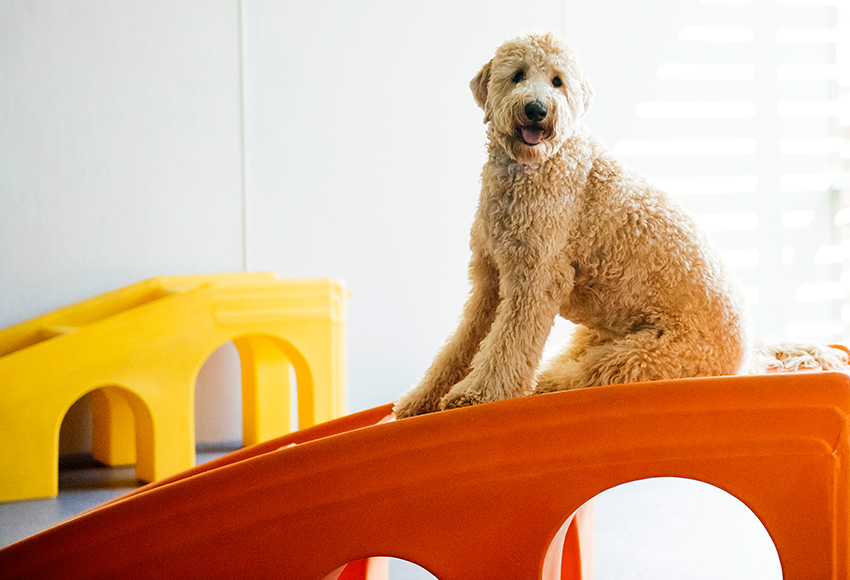Why ‘Doggos’ Love Doggy Day Care

Humans have a long, storied relationship with dogs. Since the ancient times, humans and dogs have been connected at the hip. We talk to them, they’re our business partners, and they’re our friends. There are studies that show that dogs have the intelligence of a human toddler, and recognize human expressions and a large array of words (across many languages!). It should be no surprise then that we’ve developed unique ways of talking to them, as well as talking about them. As such, doggy day care is perfect for most ‘good boi doggos’ and ‘puppers’, since not only do they get to hang out with their doggy friends, but they get to listen to their beloved human friends talk to them as well.
Meme Speak and How our Language About Dogs is Evolving
From NPR:
For example, the phrase “doing me a frighten,” used to describe startled dogs, comes from an image posted in late 2015 according to KnowYourMeme.com. In it, a tiny Rottweiler puppy shocks its parent with a flurry of borks. The parent replies, “stop it son, you are doing me a frighten.”
The origin of “bork” itself is less clear, but it’s clearly onomatopoeic. It’s perhaps most well-known thanks to Gabe the Dog, a tiny floof of a Miniature American Eskimo/Pomeranian whose borks have been remixed into countless classic tunes. Jurassic Bork, The Bork Files, Doggos of the Borkribbean, Imperial Borks — the list goes on and on.
Tongue sounds have been floating around the Internet for a few years now, but seem to have finally found a home in DoggoLingo. They even have precise meanings. As Redditor blop_cop points out in a comment, “A blop is when a dog pokes his tongue out due to tiredness/forgetfulness and it often is only a small portion of the tongue. A mlem is basically any time a dog is licking their chops, or sticking their tongue out!”
The word “mlem” is the entirety of the caption in this post from a user to the Dogspotting Facebook group.
A perfect example of a miniature Australian shepherd doing a “mlem” was captured on Facebook, as shown here.
Not all of DoggoLingo is canine-bound. “Blep” is commonly used for cats sticking out their tongues, too, as demonstrated on the feline-focused subreddit /r/blep.
The constant use of “heck” in DoggoLingo might come from the snek meme, McCulloch says, where snakes try to act tough but are really just loveable losers.
With such a wide array of different terms and vocalizations for what our beloved puppers do, it shows how deep our roots are with dogs. We aim to understand them and personify them, attributing personalities to them and even human-type language. What’s more, some dogs seem to understand and respond to it!
How Doggy Day Care Helps Your Dog Understand YOU
Doggy day care is lead by our trained, valued staff, and each playroom has an attendant who looks over and talks to the dogs within. People tend to use the same kinds of words repeatedly with dogs, and listening to human voices can be soothing and/or exciting to dogs, depending on the tone used. You can use these same skills at home to continue the bonding & learning experience with your ‘doggo’. And if your dog is motivated by human voices, they can even be soothed by them in the event that you’re not able to get into dog boarding and worry about your pup feeling loney- just pop on a the video of Dr. Who David Tennant reading for dogs!
Want to learn more about dogs? Keep following our page for updates and info about the benefits of Dogtopia! And don’t forget to contact us (below) if you’d like to set up a tour of our awesome facility.








